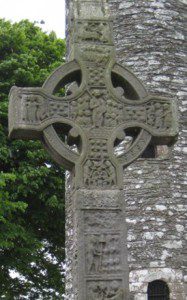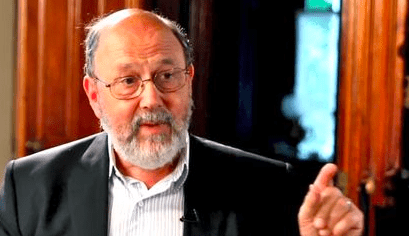 Anthony Thiselton: “In spite of those who underestimate the central importance of the Return of Christ in the New Testament, the concept remains central from the earliest New Testament writings to the latest” (89). There is an issue here: moderns and postmoderns find this element of NT and early Christian belief a bit embarrassing, if not mythical, perhaps even imaginary or delusional.
Anthony Thiselton: “In spite of those who underestimate the central importance of the Return of Christ in the New Testament, the concept remains central from the earliest New Testament writings to the latest” (89). There is an issue here: moderns and postmoderns find this element of NT and early Christian belief a bit embarrassing, if not mythical, perhaps even imaginary or delusional.
Do you think God, someday, will make all things right? Or is a hope for the Return of Christ a symbol for hope that things will get better? or can get better? or that we can make things better? Do you think Christ will return — in recognizably physical ways — to this earth to rule as king?
I grew up in a movement that valued this stuff, to the point of the absurd. We were pre-tribulation rapturists, we loved writers like Hal Lindsay and Salem Kirban, and the Secret Rapture and Second Coming came to us naturally. And much of what we believed, so I think now, was not founded in solid study of the New Testament but was instead one idea building on another and the next thing we were seeing things in ways that diverged far too radically from the great Christian interpretive tradition.
Many who grew up as I did want to put this all behind us, like putting behind a childhood theology, but Thiselton’s book (Life after Death) offers cogent summaries (some of them clearly not up to date in scholarship) of biblical texts affirming a real (he isn’t quite clear here) Return of Christ.
There are a few terms here: Parousia, referring to a royal, sovereign, and vindicatory “Coming” or “Presence”; epiphaneia, a public appearance; apokalypsis, revelation and full disclosure. He also argues that apocalyptic eschatology in the NT, formerly dismissed by such scholars as RH Charles and CH Dodd, has come back into its own through Käsemann, Koch, Chris Beker, JL Martyn, and Alexandra Brown.
He doesn’t think it is clear that Paul thought Christ would return in his own lifetime but that he thought Christ might or might not; in other words, Paul can’t be read as one who clearly thought like that.
On a secret rapture of being caught up into the sky, Thiselton again is not entirely clear but it appears to me he is saying it refers to a “meeting together as one at the Parousia” (99) and therefore is close to Tom Wright and GB Caird on this one.
The rest of Thiselton’s chp sketches the rest of the NT after Paul. Jesus/Gospels clearly have a future act of God where all things are made right … and all the way through to Revelation (with no major proposals) to the view that the Return of Christ/Second Coming is the public and absolute vindication of the sovereignty of God.















